We use cookies to personalize content and advertisements, to offer social media functions and to analyze access to our website.
You can revoke the given consent at any time. You can find further information in our Privacy Policy.
Apr 2015
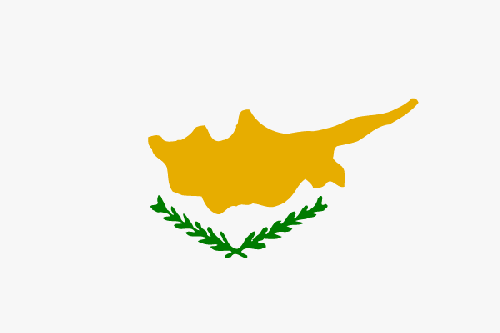 With some delay, Cyprus has transposed the WEEE Recast Directive 2012/19/EU into national legislation: The Waste (Waste Electrical and Electronic Equipment) Regulation 73/2015 was officially published on March 13, 2015.
Based on the new WEEE Regulation, Cyprus has implemented the following:
– New producer definition, including direct sales to B2C and B2B end-users
– Authorized representative requirement
– 0:1 take-back obligation for small EEE for retailers with a sales area for EEE of more than 400m²
– Minimum requirements for shipment of used EEE/WEEE
– New WEEE categories applicable from August 15, 2018
– New collection target
With some delay, Cyprus has transposed the WEEE Recast Directive 2012/19/EU into national legislation: The Waste (Waste Electrical and Electronic Equipment) Regulation 73/2015 was officially published on March 13, 2015.
Based on the new WEEE Regulation, Cyprus has implemented the following:
– New producer definition, including direct sales to B2C and B2B end-users
– Authorized representative requirement
– 0:1 take-back obligation for small EEE for retailers with a sales area for EEE of more than 400m²
– Minimum requirements for shipment of used EEE/WEEE
– New WEEE categories applicable from August 15, 2018
– New collection target
Mar 2015
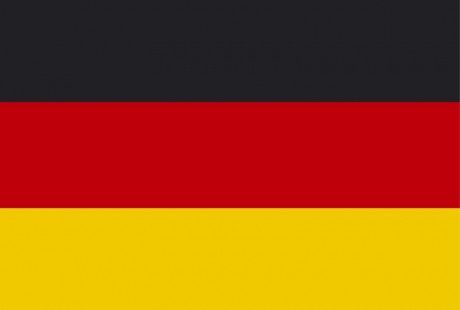 Consumers will be able to return their used electrical and electronic equipment such as laptops, radios or vacuum cleaners free of charge if they buy a new and comparable device in the store.
Smaller electrical and electronic equipment may be returned without purchasing a new device. However, the latter regulation will only apply to bigger retailers with a sales area of more than 400 square meters, and also to bigger online sellers.
The new take-back obligations are regulated by the reform of the German ElektroG (Electrical and Electronic Equipment Act), which is expected to enter into force at the end of this year. This reform transposes the changes of the WEEE Directive 2012/19 /EU (WEEE Recast Directive) which came into force in 2012. As further EU member states, Germany is in delay with the implementation which should have been carried out before February 14, 2014.
Beside the increased take-back obligations for retailers, the WEEE Directive foresees new collection rates for WEEE starting with next year. The collection rates shall evolve gradually, and from 2019 the minimum collection rate to be achieved annually shall be 65 percent. Furthermore, the product scope will be extended to all electrical and electronic devices beginning with 2018.
Consumers will be able to return their used electrical and electronic equipment such as laptops, radios or vacuum cleaners free of charge if they buy a new and comparable device in the store.
Smaller electrical and electronic equipment may be returned without purchasing a new device. However, the latter regulation will only apply to bigger retailers with a sales area of more than 400 square meters, and also to bigger online sellers.
The new take-back obligations are regulated by the reform of the German ElektroG (Electrical and Electronic Equipment Act), which is expected to enter into force at the end of this year. This reform transposes the changes of the WEEE Directive 2012/19 /EU (WEEE Recast Directive) which came into force in 2012. As further EU member states, Germany is in delay with the implementation which should have been carried out before February 14, 2014.
Beside the increased take-back obligations for retailers, the WEEE Directive foresees new collection rates for WEEE starting with next year. The collection rates shall evolve gradually, and from 2019 the minimum collection rate to be achieved annually shall be 65 percent. Furthermore, the product scope will be extended to all electrical and electronic devices beginning with 2018.
Feb 2015
 Spain was one of the EU member states which were delayed in transposing the EU WEEE Recast: Finally, on last Saturday, February 21, 2015, “Real Decreto 110/2015, sobre residuos de aparatos eléctricos y electrónicos” (Royal Decree 110/2015) was officially published in the Spanish Official Gazette. With this Decree, Spain has finally transposed the WEEE Directive 2012/19/EU into national law.
A deeper analysis of the new Spanish Decree will show which are the national specifications and changes. We will provide you soon with more information.
Spain was one of the EU member states which were delayed in transposing the EU WEEE Recast: Finally, on last Saturday, February 21, 2015, “Real Decreto 110/2015, sobre residuos de aparatos eléctricos y electrónicos” (Royal Decree 110/2015) was officially published in the Spanish Official Gazette. With this Decree, Spain has finally transposed the WEEE Directive 2012/19/EU into national law.
A deeper analysis of the new Spanish Decree will show which are the national specifications and changes. We will provide you soon with more information.
Feb 2015
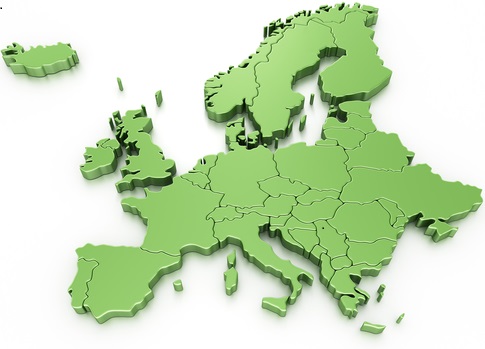 EU Member States have to adopt national laws, regulations and administrative provisions necessary to comply with the new Directive 2012/19/EU of 4 July 2012 on waste electrical and electronic equipment (WEEE Recast Directive).
The deadline for transposition was 14 February 2014. Today, one year after that day, only 20 of the states have adopted the necessary legal provisions.
In Belgium only one of the three regions, namely Flanders, has transposed the Recast. Cyprus, Germany, Poland, Romania, Slovakia and Spain only have drafts available. In Slovenia not even a draft has been published yet.
EU Member States have to adopt national laws, regulations and administrative provisions necessary to comply with the new Directive 2012/19/EU of 4 July 2012 on waste electrical and electronic equipment (WEEE Recast Directive).
The deadline for transposition was 14 February 2014. Today, one year after that day, only 20 of the states have adopted the necessary legal provisions.
In Belgium only one of the three regions, namely Flanders, has transposed the Recast. Cyprus, Germany, Poland, Romania, Slovakia and Spain only have drafts available. In Slovenia not even a draft has been published yet.
Dec 2014
 Following the new WEEE Regulations in UK, beginning with January 1, 2016, any electrical and electronic equipment which can be used by both households as well as business users (‘dual use’) has to be classified as household equipment (B2C).
For producers whose electrical and electronic equipment is re-classified as B2C this means:
• Producers will have to provide the sales data in accordance with the new classifications beginning with January 1, 2015. This is required in order to calculate the obligations for 2016.
• Since the invoicing for the volumes put on the market in 2015 takes place in 2016, producers might have to face an additional B2C financial obligation up from January 2016.
• Producers need to change registration with the Environment Agency. This has to be done prior to the data submission for the first quarter of 2015.
Following the new WEEE Regulations in UK, beginning with January 1, 2016, any electrical and electronic equipment which can be used by both households as well as business users (‘dual use’) has to be classified as household equipment (B2C).
For producers whose electrical and electronic equipment is re-classified as B2C this means:
• Producers will have to provide the sales data in accordance with the new classifications beginning with January 1, 2015. This is required in order to calculate the obligations for 2016.
• Since the invoicing for the volumes put on the market in 2015 takes place in 2016, producers might have to face an additional B2C financial obligation up from January 2016.
• Producers need to change registration with the Environment Agency. This has to be done prior to the data submission for the first quarter of 2015.
Oct 2014
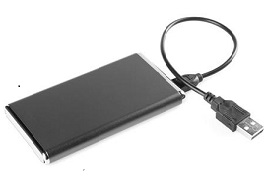 You are out and your mobile phone or tablet doesn´t work anymore, because the battery is empty and needs to be recharged? In this situation, a so-called power bank can be a good solution. A power bank is an external battery that can recharge a mobile phone or tablet using USB interface.
The power bank itself can be recharged directly by power adapter at a socket or via USB interface of a laptop. At first sight, power banks seem to be a rechargeable batteries. But due to their functionalities and technical specifications they might be classified as electric device and therefore could fall in the scope of the German ElektroG (WEEE Regulations). That means comprehensive requirements for producers and distributors of power banks.
1cc supports producers and distributors of electrical and electronic products such as power banks in clarifying their obligations under the German ElektroG (WEEE Regulations) and BattG (Battery Act). For more information, please contact us at compliance@1cc-consulting.com.
You are out and your mobile phone or tablet doesn´t work anymore, because the battery is empty and needs to be recharged? In this situation, a so-called power bank can be a good solution. A power bank is an external battery that can recharge a mobile phone or tablet using USB interface.
The power bank itself can be recharged directly by power adapter at a socket or via USB interface of a laptop. At first sight, power banks seem to be a rechargeable batteries. But due to their functionalities and technical specifications they might be classified as electric device and therefore could fall in the scope of the German ElektroG (WEEE Regulations). That means comprehensive requirements for producers and distributors of power banks.
1cc supports producers and distributors of electrical and electronic products such as power banks in clarifying their obligations under the German ElektroG (WEEE Regulations) and BattG (Battery Act). For more information, please contact us at compliance@1cc-consulting.com.
Sep 2014
Aug 2014
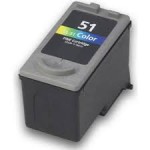 Toner and ink cartridges which include electronic components are considered to be in the scope of the German ElektoG (independent from the transposition of the WEEE Directive).
This is the result of a discussion between representatives of German Umweltbundesamt (environmental protection agency), the German Stiftung ear (national WEEE register) and the industry association BITKOM on August 5, 2014.
Producers or distributors who bring toner or ink cartridges on the market which need electric current or electromagnetic fields during their use must register the company and the cartridges at ear, submit the obligatory quantity reports and mark their devices with the crossed-out wheeled waste bin.
This interpretation of the German ElektroG with respect to toner and ink cartridges with electronic components is valid immediately and can be subject to enforcement practice of local authorities.
The “new” interpretation is in line with the concept of German Stiftung ear, while industry has argued to continue to consider toner and ink cartridges as supplies material which is not in the scope of German ElektroG. This interpretation was common understanding in the past. Competent authorities are expected to examine more closely compliance with the new interpretation beginning next year, according to BITKOM.
Toner and ink cartridges which include electronic components are considered to be in the scope of the German ElektoG (independent from the transposition of the WEEE Directive).
This is the result of a discussion between representatives of German Umweltbundesamt (environmental protection agency), the German Stiftung ear (national WEEE register) and the industry association BITKOM on August 5, 2014.
Producers or distributors who bring toner or ink cartridges on the market which need electric current or electromagnetic fields during their use must register the company and the cartridges at ear, submit the obligatory quantity reports and mark their devices with the crossed-out wheeled waste bin.
This interpretation of the German ElektroG with respect to toner and ink cartridges with electronic components is valid immediately and can be subject to enforcement practice of local authorities.
The “new” interpretation is in line with the concept of German Stiftung ear, while industry has argued to continue to consider toner and ink cartridges as supplies material which is not in the scope of German ElektroG. This interpretation was common understanding in the past. Competent authorities are expected to examine more closely compliance with the new interpretation beginning next year, according to BITKOM.
Mar 2014
Feb 2014